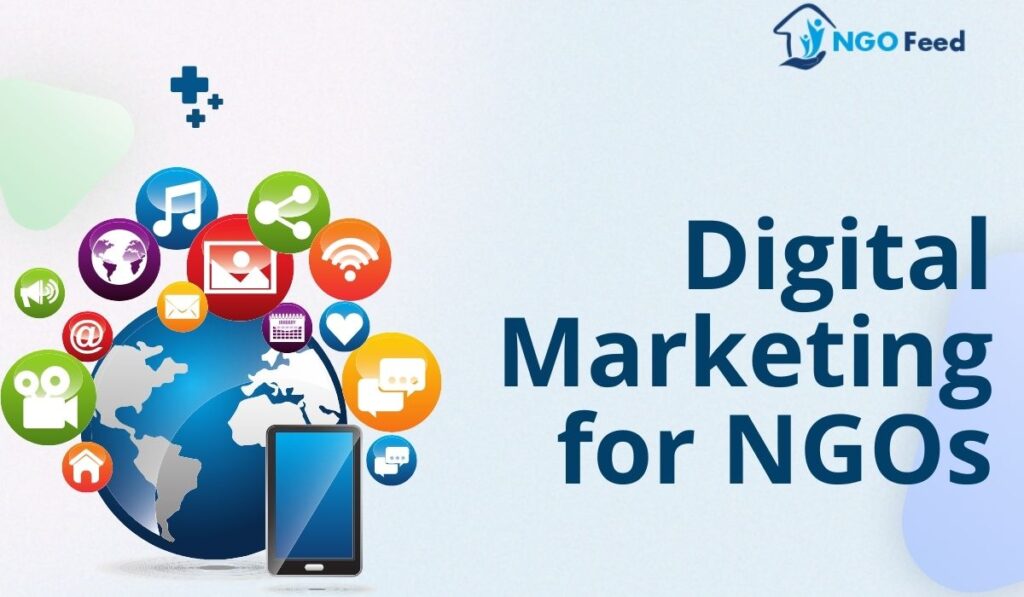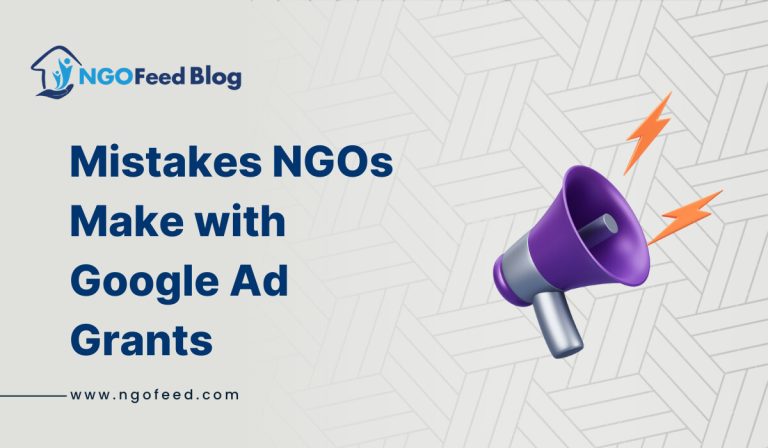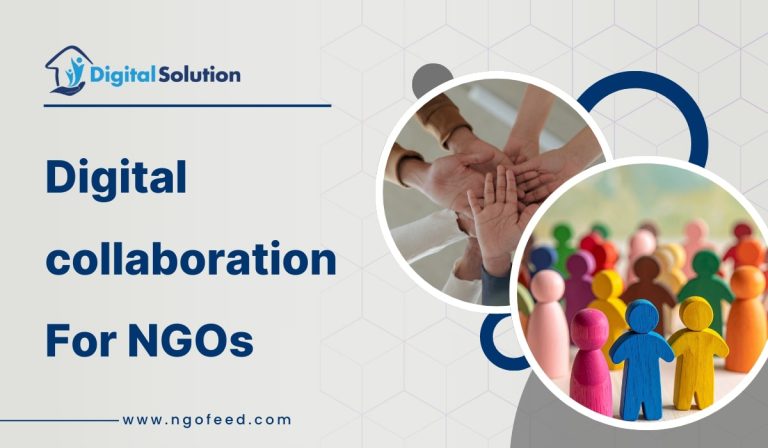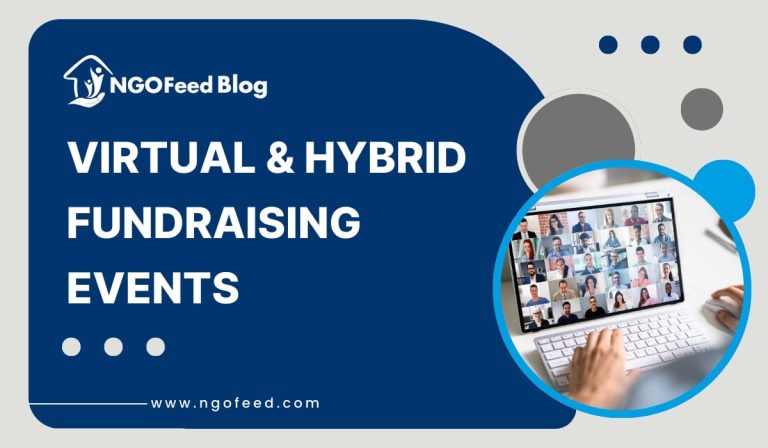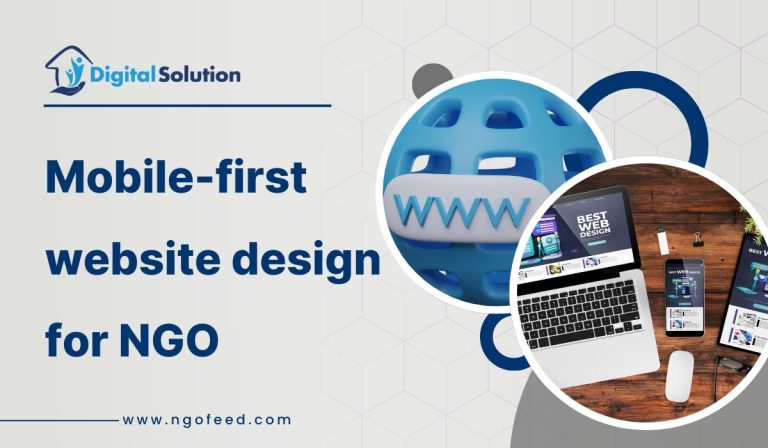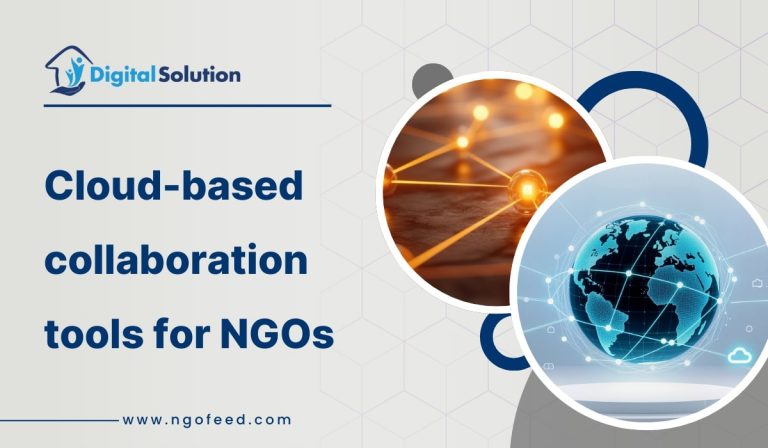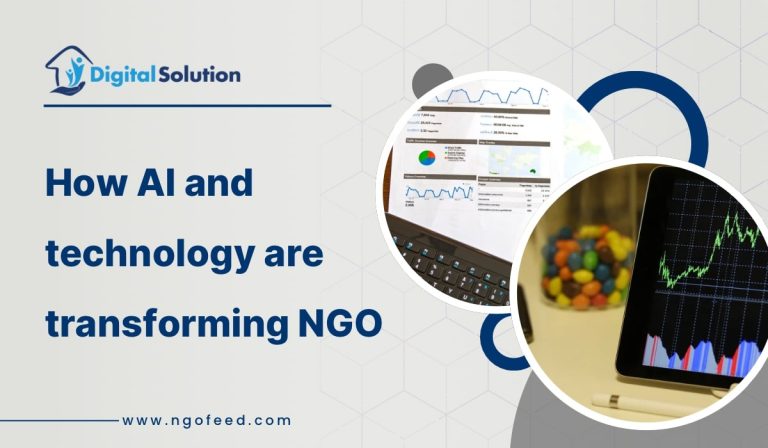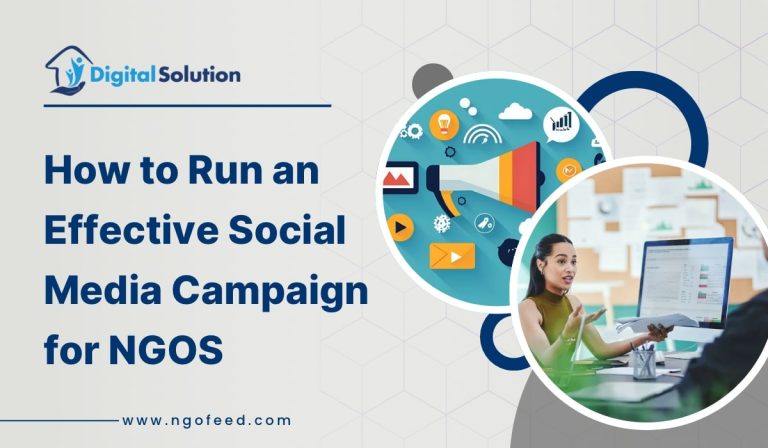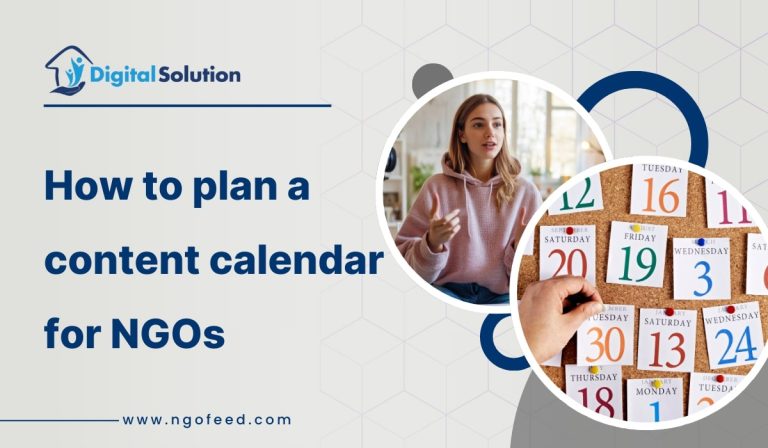Digital Marketing for NGOs: In today’s busy world, digital marketing isn’t just a buzzword; it’s a requirement. It is important to use digital marketing to connect with customers and create success whether you support a non-profit organization, manage a large business or run a small operation.
With rapid change in technology, automation and artificial intelligence (AI) impacting virtually every industry, digital marketing is even more required to succeed.
To be relevant and distinguish yourself in the crowded digital space these days, it is insufficient to be online. You need to learn about and implement the most current tools and techniques. It’s typically the job of NGOs to use their own experience in working to increase engagement and reach.
Table of Contents
What is Digital Marketing
Digital marketing is the practice of promoting goods, services or brands through digital platforms, channels and technology. It includes a broad range of approaches such as:
These tools help NGOs connect and interact with audiences on a global scale.
- Social media marketing
- SEO (Search Engine Optimization)
- Content creation and video storytelling
- Email marketing
- AI-powered campaigns
- Online advertising
Why Digital Marketing is Important for NGO
In a fast-changing digital environment, NGOs must have a strong online presence to:
- Effective Advocacy: Use petitions, digital activism, and viral content to raise awareness and inspire communities to act.In a digital environment that is rapidly changing, NGOs must have a strong online presence to:
- Increase Awareness and Reach: Use platforms like social media, websites and search engines to reach a global audience instantly.
- Engage Stakeholders: Use interactive storytelling, reels, and content to build deep relationships with volunteers, donors and beneficiaries.
- Drive Donations: Launch mobile-first, targeted fundraising initiatives with easy online payment options such as UPI, wallets and crowd funding.
Revolutionising the Future: How NGOs Can Grow with Digital Marketing
Growth starts with a customized digital strategy aligned with an NGO’s mission. Building an effective online presence with strong social media profiles, user-friendly websites and authentic content is key.
- Interact directly with supporters through personalized communication and responsive community management.
- Share engaging stories that highlight impact.
- Run digital fundraising efforts using targeted ads and email marketing.
1. Expanding Online Presence
Increasing an NGO’s online exposure and engagement requires a number of calculated actions. Furthermore important is performance improvement, which includes universal accessibility and quicker loading times. NGOs may efficiently increase their internet presence, draw more visitors, and improve audience engagement by concentrating on these areas.
- Website Optimization
- Improving Website UX/UI for Better Engagement
- Ensuring Mobile Compatibility
- Search Engine Optimization (SEO)
- Keyword Research for Higher Search Rankings
- Content Optimization to Drive Organic Traffic
2. Enhancing Social Media Engagement
Improving social media engagement entails connecting with audiences by using Facebook, Instagram, and Twitter intelligently. NGOs can build stronger relationships with their community by producing and disseminating interactive and shareable content. Visibility and interactivity can be increased by using features like stories and live videos, creating content specifically for each site, and launching focused social media campaigns.
Furthermore, interacting with followers on a regular basis through messages, comments, and community-building exercises fosters stronger bonds and the development of a helpful online community.
- Platform Selection
- Identifying the Right Social Media Channels (e.g., Facebook, Instagram, LinkedIn)
- Tailoring Content for Each Platform
- Content Strategy
- Creating Shareable and Interactive Content
- Leveraging Stories, Reels, and Live Videos
3. Innovative Fundraising Techniques
Cutting-edge fundraising strategies increase donations and reach by utilising digital resources. NGOs can interact with a wider audience through virtual events such as webinars and auctions, as well as online crowdfunding platforms. By allowing supporters to start their own campaigns, peer-to-peer fundraising increases effect and outreach even more. These tactics make use of digital interaction to increase fundraising efforts and draw in new contributors.
- Online Fundraising Campaigns
- Running Crowdfunding Campaigns on Platforms Like GoFundMe
- Utilising Peer-to-Peer Fundraising Tools
- Virtual Events
- Hosting Webinars, Virtual Auctions, and Fundraising Galas
- Engaging Attendees with Interactive Features
4. Storytelling and Content Marketing
By providing engaging tales about their impact, content marketing and storytelling enable non-profits to establish an emotional connection with their audience.Supporters are further captivated and informed by visual content, such as infographics and videos. NGOs may inspire action, develop closer ties with their community, and strengthen their brand by regularly producing and disseminating impactful content.
- Compelling Narratives
- Crafting Stories that Highlight Impact and Success
- Using Testimonials and Case Studies
- Visual and Video Content
- Producing Engaging Videos and Infographics
- Showcasing Real-life Stories and Impact
5. Targeted Advertising
NGOs can precisely target certain audiences with targeted advertising. NGOs can target specific demographics, interests, or behaviours with their campaigns by utilising social media ads and Google Ads, which will increase relevance and engagement. Retargeting techniques maximise ad expenditure and improve overall campaign efficacy by re-engaging visitors who have interacted with the NGO’s content.
- Social Media Ads
- Creating Targeted Ads on Platforms Like Facebook and Instagram
- Using Retargeting to Re-engage Previous Visitors
- Google Ads
- Applying for Google Ad Grants for Nonprofits
- Running Search and Display Ads to Reach Specific Audiences
6. Data-Driven Insights and Analytics
Through the tracking of performance metrics and the analysis of user behaviour, data-driven insights and analytics assist NGOs in optimising their strategy. Social media insights and tools such as Google Analytics offer useful data that can be used to improve the efficacy of campaigns and make them more efficient overall.
- Performance Tracking
- Using Tools Like Google Analytics and Social Media Insights
- Monitoring Campaign Performance and Engagement Metrics
- Optimising Strategies
- Analysing Data to Refine Marketing Strategies
- A/B Testing to Determine Effective Approaches
7. Building and Nurturing Relationships
Creating and maintaining ties with supporters requires active social media community management and individualised email campaigns. NGOs may establish ties, increase loyalty, and promote continuous support by producing material that is specifically customised to their audience and communicating on a frequent basis.
- Email Marketing
- Developing Segmented Email Campaigns
- Crafting Personalised Messages and Newsletters
- Community Management
- Engaging with Followers and Responding to Comments
- Creating Online Communities and Forums
Importance
For non-profit organisations, digital marketing is essential since it greatly improves their capacity to connect, interact, and grow their audience. Using digital platforms, non-governmental organisations can raise awareness of their causes, effectively manage focused fundraising efforts, and create deep ties with their supporters. It makes it possible for NGOs to communicate in real-time and do outreach at a cheap cost, which helps them mobilise resources efficiently. Furthermore, digital marketing offers insightful data that can be used to measure impact and optimise methods, which in turn encourages greater participation and support for their causes.
How Digital Marketing Can Grow Your NGO
Using digital marketing techniques can help your NGO develop by:
- Targeted outreach: reaching out and engaging with particular groups of people who are interested in your cause by using data-driven insights.
- Content marketing: Creating engaging and compelling content that educates, inspires, and motivates your audience to take action
- Social Media Engagement: Using Twitter, Facebook, and Instagram to create a network of supporters and build community will help you spread the message and get more people engaged
- Search Engine Optimization (SEO): Enhancing your non-profit organization’s online presence through (SEO) can drive more organic traffic to your website and more visitors overall.
- Email marketing: Building connections with supporters and donors through personalized emails that encourage participation and donations.
Benefits of Listing Your NGO with ngofeed
When you use NGOfeed to list your organization, you can access:
- Enhanced Visibility: Make your organization more visible to potential donors, volunteers and partners who are actively looking for causes to support.
- Expertise and Support: Take advantage of our knowledge in digital marketing for NGOs, which includes best practices and customized strategies
- Network Opportunities: Make connections with a group of NGOs that share values to promote cooperation and mutual learning.
- Resources and Tools: Get access to webinars, resources and workshops that can enhance your NGO’s online visibility.
Why Choose NGOFeed Digital Solution?
NGOfeed stands out as a nonprofit success partner because:
- Commitment to Impact: We are committed to helping non-governmental organizations (NGOs) achieve significant results by utilizing efficient digital marketing techniques
- Tailored Solutions: To ensure maximum effectiveness, our team tailors solutions to your organization’s specific demands and objectives.
- Proven Track Record: We have a history of success in assisting NGOs in India of all sizes in achieving their goals through excellent digital marketing.
Conclusion
To sum up, digital marketing is an effective strategy that may greatly increase the expansion and influence of nonprofits. NGOs can expand their reach by optimising their websites and using effective SEO to improve their online presence. Involvement on social media creates stronger bonds and encourages communities.
Novel fundraising strategies such as virtual events and internet campaigns open up new sources of funding. Narrative techniques and content marketing elicit strong feelings and increase consciousness.
Data-driven insights and targeted advertising maximise resource allocation and outreach. When taken as a whole, these digital tactics help non-profits become more visible, interact with supporters more successfully, and create real change.

